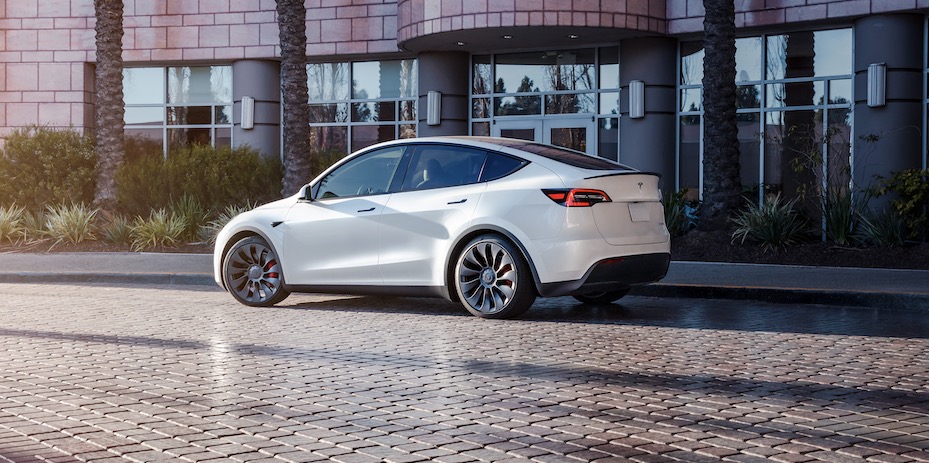
Some media say EV demand is slowing, and other media claim there’s record demand. So what’s going on? ZETA’s Albert Gore and I chatted about it.
Let’s look at the latest US EV sales stats first. Cox Automotive reported on October 12 that EV sales volumes set another record in Q3, as total sales of BEVs passed 300,000 for the first time in the US market. That’s a 49.8% increase year-over-year.
What’s more, the market is “firmly on track” to surpass 1 million this year for the first time ever – and indeed, that milestone is expected to be reached this month. Cox says EV sales have now increased for 13 straight quarters. But it also concludes its report with the subtle words, “Change is never easy.”
That’s for sure. So, the EV industry is growing, but there are a lot of growing pains.
Let’s look at GM as an example. The automaker abandoned its plans to build 400,000 EVs by mid-2024 and will wait several months to begin to sell some new EV models. But its CFO, Paul Jacobson, said in its Q3 2023 earnings call that slowing demand was not something the company was seeing in its portfolio. He noted that “customers have been remarkably resilient in the order book, continuing to keep their orders on the books.” I even searched the call’s transcript for the phrase “slowing demand,” and it was nowhere to be found.
So, Albert Gore, the Zero Emission Transportation Association (ZETA) executive director, and I discussed what he’s observing when it comes to EV demand. ZETA advocates for the full adoption of EVs by 2030, and Gore was previously the lead for public policy and business development for the East and Midwest at Tesla. (And yes, because I know you’re wondering, he’s the son of the former VP and Nobel Peace Prize winner Al Gore.)
Gore cited the data when I asked him about the slew of recent doom stories. He said he’s been “puzzled by the avalanche of stories about how EVs are piling up on dealer lots. I tried to do a deep dive into sales data, and if there’s [a slowdown] it must be highly specific or regional, but year-over-year, the sales growth is 40-50%. It’s enormous. And there are a much greater variety of vehicles being sold.”
So perhaps it’s not that EV sales aren’t growing, much less growing quickly – they are. Perhaps it’s just that they’re not selling as fast as OEMs want them to, seeing how they’ve staked a lot on the EV transition. That’s a big change, and change makes them, and the market, nervous. And there are some substantial losses occurring – Ford, for example, expects a full-year loss of $4.5 billion for its EV unit.
Add to that the fact that prices are being pushed down due to rising competition – Tesla cut the Model Y’s price so the least expensive model is $2,500 less than the Ford Mustang Mach-E after IRA tax credits in order to compete.
So, both demand and supply are up. Going back to GM, its EV production climbed 40% from Q2 to Q3, while EV sales grew 28%. Dealers’ lots are no longer empty, and we’re moving past the EV-buying pioneer phase into the beginnings of mass market sales. Consumers who are preparing to buy EVs know that upfront rebates of $7,500 at dealerships are coming, too.
Gore noted that folks who want to “maintain the status quo” want to use the number of cars on dealer lots as a data point, but “that’s not a data point that shows sales are slowing down. Why is this single thing magnified to a hundred stories when you zoom out and see phenomenal growth?”
Top comment by ID4ME
It is possible for both to be true in that the rate of growth could be decreasing while overall growth is still increasing. That doesn't make for a great click bait title however.
Gore said that he feels “it’s a mistake to imply that people don’t want to buy EVs because data shows demand is resilient and sales are growing consistently. But the transition will take hard work, sustained effort, and commitment.
“There are just so many different dynamics related to EVs right now.”
If you live in an area that has frequent natural disaster events, and are interested in making your home more resilient to power outages, consider going solar and adding a battery storage system. To make sure you find a trusted, reliable solar installer near you that offers competitive pricing, check out EnergySage, a free service that makes it easy for you to go solar. They have hundreds of pre-vetted solar installers competing for your business, ensuring you get high quality solutions and save 20-30% compared to going it alone. Plus, it’s free to use and you won’t get sales calls until you select an installer and share your phone number with them.
Your personalized solar quotes are easy to compare online and you’ll get access to unbiased Energy Advisers to help you every step of the way. Get started here. –ad*
FTC: We use income earning auto affiliate links. More.




Comments